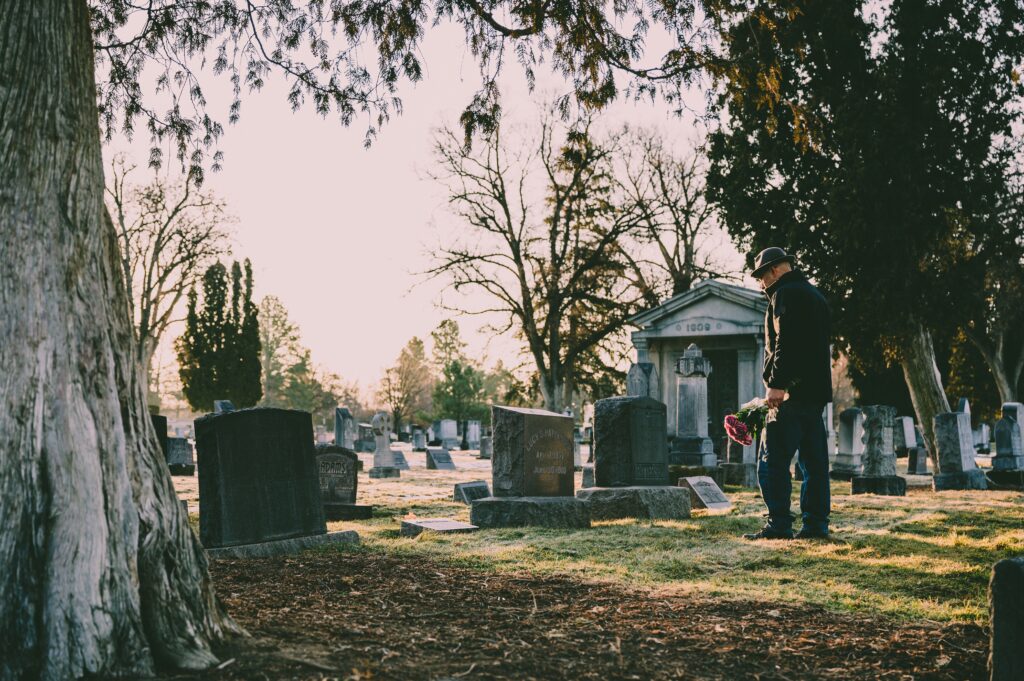Every single person feels grief after a traumatic event. It’s normal, and it’s a necessary part of the healing process.
But sometimes this grief gets too overwhelming and goes too far and turns into something else entirely. We’ve put together this guide to help you learn more about complicated grief disorder, how to recognize the signs, and how to heal.
So let’s get started.
What Is the Difference Between Complicated Grief and Normal Grief?
Grief looks different for everyone, so there’s not really a “normal” when it comes to this process. Because of this, it can be difficult to spot the signs of complicated grief disorder, especially within the first few months.
This disorder starts as a natural (and very much needed) response to a traumatic event, such as the loss of a loved one. However, instead of recovering from the state of grief and picking up their normal, daily activities, people who suffer from complicated grief disorder will get stuck in this state of grief. The feelings will get more severe, become more present, last for longer periods of time, and get worse over time.
Once a person falls into this disorder, it becomes difficult or even impossible to recover from it on their own.
What Causes Some People to Develop Complicated Grief?
There’s no specific cause for this disorder. If two people experience the exact same trauma in the exact same way, one person may develop the disorder while the other will heal from the grief in a normal and natural timeframe.
Some people just get it. In fact, up to 20% of people who experience the loss of a loved one will develop this disorder.
That said, there are several factors that can make a person more likely to find themselves dealing with a complicated grief reaction. (Again, just because a person matches up with these components doesn’t mean they will get this disorder, but it does increase their risk.)
- The person currently struggles with a substance abuse disorder (such as drugs or alcohol)
- The person has a mental illness or has had one in the past
- The person has been diagnosed with PTSD for something unrelated to this new trauma
- The death of the loved one was sudden or unexpected
- The person has experienced more than one death in a short time frame
- The person lost someone they were highly dependent on, such as a parent or spouse
- The person witnessed the death
If you or a loved one has gone through one (or more) of these things, you should keep a close eye on them during their grief process. This will help you be able to spot symptoms of complicated grief and take action right away.
How to Recognize the Symptoms
Complicated grief looks very similar to healthy grief during the first few months (two to three). Just because you or your loved one is has a deep grieving process at this time doesn’t mean there is anything wrong with them. Everyone grieves in their own way, and something that might seem extreme to you may be healing to them.
However, after this initial time passes, the grief should start to subside. This doesn’t mean it will go away completely, so continuing moments of grieving are normal. If the grieving doesn’t seem to get any better, though, check for any of the following symptoms:
- Unmanageable sadness that never gets better (this can become unbearable over time)
- Changes to their sleeping schedule, such as trouble falling and staying asleep, sleeping at odd times of the day, etc.
- Feelings of anger, bitterness, despair, etc. toward life
- Withdrawing from the world
- No longer enjoying activities they used to love
- Avoiding social interactions, even with friends and family
- Holing up in their home and refusing to leave
- Denial
- Quick to anger, especially when asking about their grief
- Obsession with the person they lost
- Poor personal hygiene (will stop taking care of their appearance and grooming)
- Can’t engage with other tasks, such as work, other interests, etc.
- Current mental health conditions getting worse
- Reckless behavior that might be self-destructive
- Thoughts or talks of suicide
- Suicide attempts
You should always pay attention to talk of suicide (regardless of when it happens in the grieving process). Take it seriously. Pushing the problem to the side or expecting it to get better on its own can have serious consequences.
And don’t ignore any of these other symptoms either. As soon as you spot these things, you should focus on getting you or your loved one the right help immediately.
How to Help a Loved One Struggling with Complicated Grief Disorder
Unfortunately, there isn’t much you can do to help someone struggling with complicated grief disorder on your own. Treating this condition takes specialized care, and if you don’t have the right training, your good intentions won’t be enough to make a difference.
This type of grief isn’t something that will get better over time (in fact, quite the opposite). No matter what you try, it will likely continue to get worse.
Instead, you should get in touch with a mental health professional. They’ll be able to diagnose the condition and put together a treatment plan that will help you recover from (without forgetting) the loss of your loved one.
The treatment will look different depending on your personal needs, but it often includes individual, group, or family therapy, dual treatment for other conditions, medication (if necessary), aftercare treatment, etc.
Taking the First Step on the Road to Recovery
If you or your loved one is struggling with complicated grief disorder, crawling back out of this dark and hopeless place can seem impossible. But it doesn’t have to be.
Don’t wait to get in touch with us. Our team at D’Amore Mental Health will evaluate your needs and walk with you through the recovery process every step of the way.





































